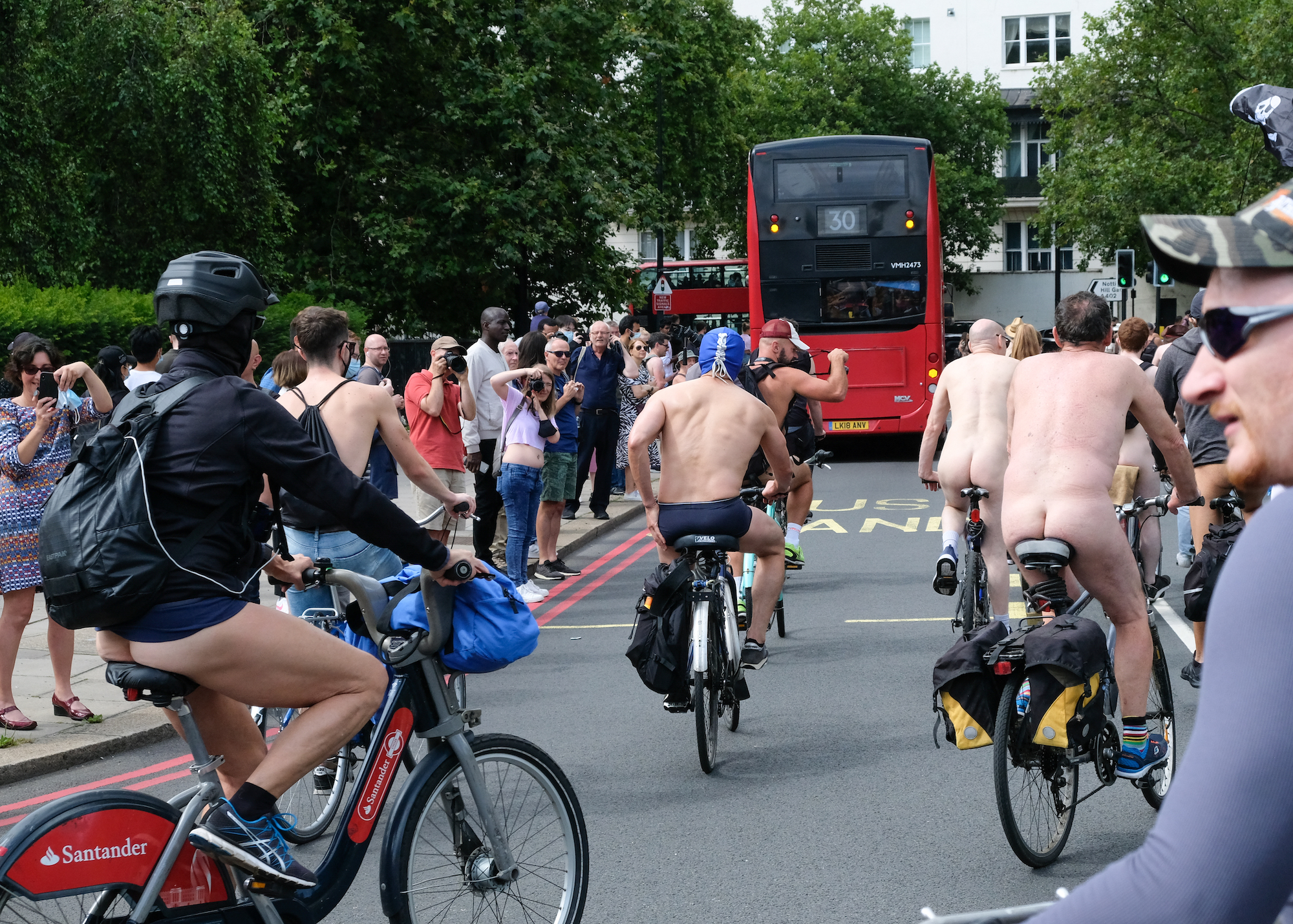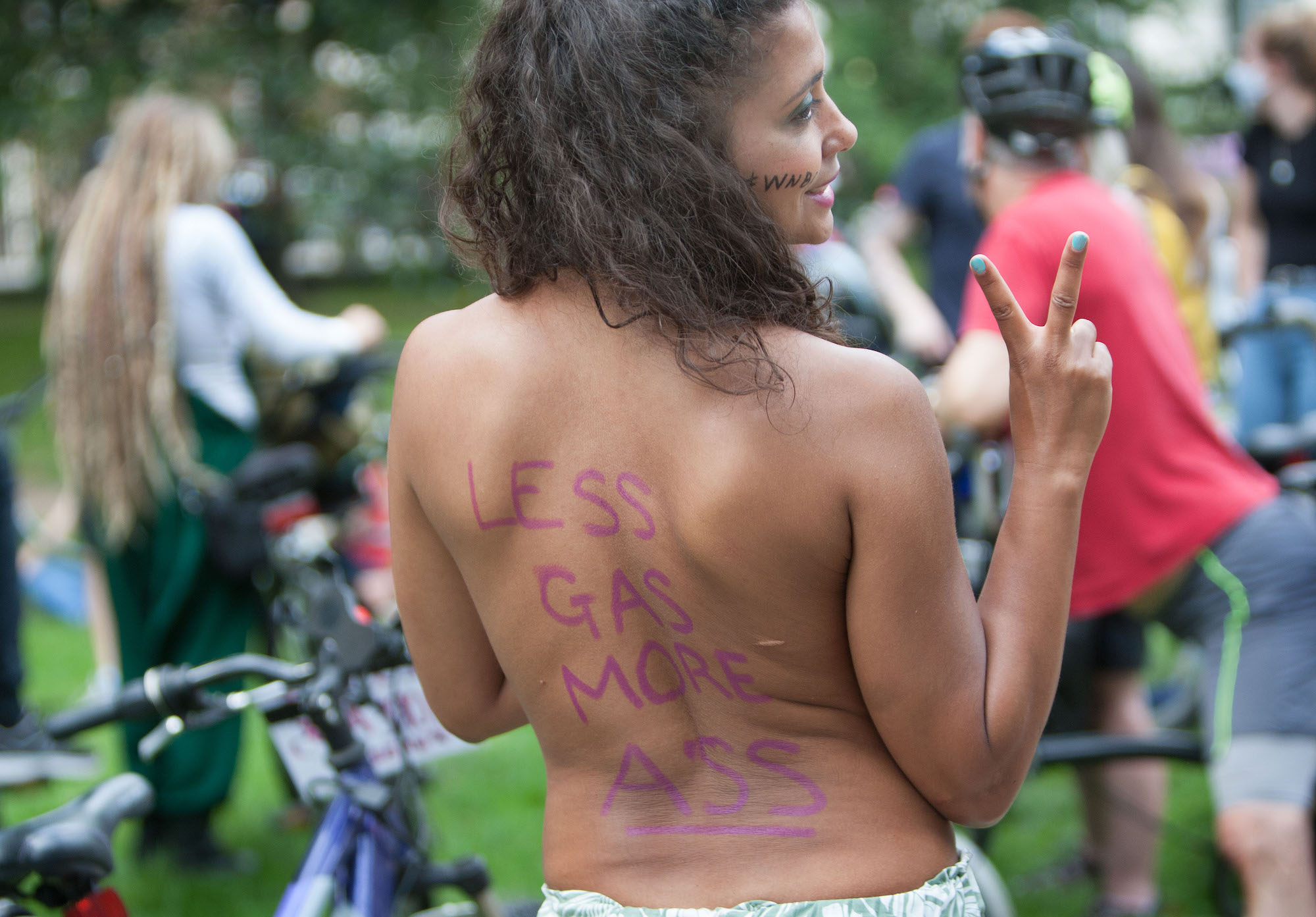Hundreds ride naked through London in environmental and cyclist safety protest
The World Naked Bike Ride returns after 26 months away

The latest race content, interviews, features, reviews and expert buying guides, direct to your inbox!
You are now subscribed
Your newsletter sign-up was successful
Hundreds gathered in London to join thousands worldwide for the World Naked Bike Ride over the weekend.
The WNBR is an annual environmental protest against the world's dependency on oil and cars for transportation, and also celebrates body positivity.
The other objectives of the ride are to obtain real rights for cyclists as well as demonstrate the vulnerability of cyclists on the road.
Most cyclists take part completely nude, although underwear and body paint is allowed, with cities all over the globe taking part.
>>> Alexandre Vinokourov returns to Astana as team confirms its future is secure for 2022
In the UK's capital, riders set off from various green spaces, including Hyde Park, Regent's Park and Victoria Park, as well as transport hubs such as Clapham Junction before convening in central London.
It was the first event for more than two years after the 2020 edition was cancelled due to the coronavirus pandemic and this year's was pushed back two months due to government restrictions.
The latest race content, interviews, features, reviews and expert buying guides, direct to your inbox!


“After 26 months, WNBR London finally rides again on Saturday for the London leg,” a WNBR spokesperson said.
“Supporters have been clamouring for the ride to go ahead and, with the removal of the 30-person restriction, the ride is back on.
“Despite the Government’s removal of measures, the ride will have many adjustments to reduce the risks from Covid-19. In particular, we are shortening the stationary gatherings and have cancelled the afterparty.”
WNBR London is part of Bike Week – an annual opportunity to promote cycling, and show how cycling can easily be part of everyday life by encouraging ‘everyday cycling for everyone'.
The first World Naked Bike Ride took place in 2003, initially with the focus of the protest being on oil dependency, before a shift of messaging to cycling advocacy began in 2006.
The 2004 event saw 28 cities in ten countries and across four continents take part, and by 2010 it had expanded to 74 cities in 17 countries.
Jonny was Cycling Weekly's Weekend Editor until 2022.
I like writing offbeat features and eating too much bread when working out on the road at bike races.
Before joining Cycling Weekly I worked at The Tab and I've also written for Vice, Time Out, and worked freelance for The Telegraph (I know, but I needed the money at the time so let me live).
I also worked for ITV Cycling between 2011-2018 on their Tour de France and Vuelta a España coverage. Sometimes I'd be helping the producers make the programme and other times I'd be getting the lunches. Just in case you were wondering - Phil Liggett and Paul Sherwen had the same ham sandwich every day, it was great.